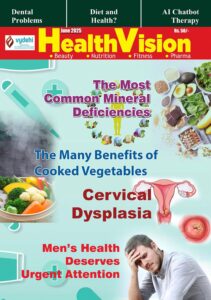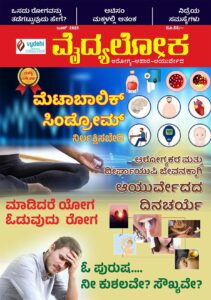Managing hypertension during Covid-19
17th May World Hypertension Day
The Covid-19 pandemic has taken a toll on the health of lakhs of people across the world and has ravaged the nation to no end. Individuals suffering from multiple co-morbidities such as hypertension, diabetes, coronary artery disease and pulmonary disease have received the shorter end of the stick as they are likely to face more severe outcomes from it. Hypertension, particularly in the elderly and in those with a high BMI, is one of the most common co-morbidities associated with poor clinical outcomes in severe Covid-19 patients.


Untreated hypertension also puts one at a greater risk of suffering from Covid-19 related complications or mortality. It is estimated that about 1 in every 23 Indians suffers from hypertension. With the right amount of awareness and care, high BP patients can stay protected from the virus and must continue taking steps to manage their condition.
Practice the following to keep blood pressure in control:
1. Continue taking your BP medications as before as there is no connection between BP medication and Covid-19 infection.
2. Monitor blood pressure at home with a digital arm monitor, about once a week or as advised by your physician. In case of any unusual fluctuations, speak to your doctor.
3. Stay hydrated and eat well – Drink enough water through the day to prevent a drop in BP. Eat healthy, home-cooked foods with enough leafy greens, fibre and protein-rich foods, citrus foods, pulses and yoghurt. Avoid salt, alcohol, cigarettes, sugary foods and caffeine.
4. Practice relaxation and breathing exercises. Lockdown and pandemic related stress can lead to a worsening of hypertension symptoms, therefore practice meditation, breathing exercises regularly to help control blood pressure. It advisable to use this time to correct lifestyle factors that may be contributing to high BP.
5. Practice moderate physical activity daily that gets your heart rate up. Set aside a time of 30 minutes to an hour for brisk walking, or to do on the spot exercises such as skipping/ jumping jacks. Online classes and apps where you can connect with a community of people exercising will help keep you motivated and remind you to do your daily exercises.
Do not ignore adverse symptoms
Symptoms such as chest pain, palpitations, sudden onset of severe headache, blurry vision, weakness of face and limbs, and disorientation must not be ignored. In case of symptoms of heart attack or similar emergencies, it is advised to seek medical help immediately and not delay as it affects the treatment outcome. In case there are signs of fever, contact your doctor immediately.
While there is some evidence that the Covid-19 virus can have heart implications in the future even in otherwise healthy individuals and research is still under-way to fully understand this, suffice to say, we have enough reason to protect ourselves from it. The golden health practices such as social distancing, building and maintaining immunity, the usage of masks, and getting oneself vaccinated at the earliest, are key to maintaining optimal health of the heart and body as a whole.
It is advised that heart patients take the Covid-19 vaccine as early as possible as they are at an increased risk of developing complications from the virus. As per the vaccination guidelines, heart patients can take the vaccine and should not have any adverse side effects apart from commonly expected ones such as slight fever, pain, tiredness, etc. Patients who are on blood thinners may notice more bruising on the site of vaccination, however this is normal. Keep your vaccine provider and doctor informed about your health condition.


Dr. S. Venkatesh
Lead Consultant – Interventional Cardiology
Aster RV Hospital, Bengaluru











